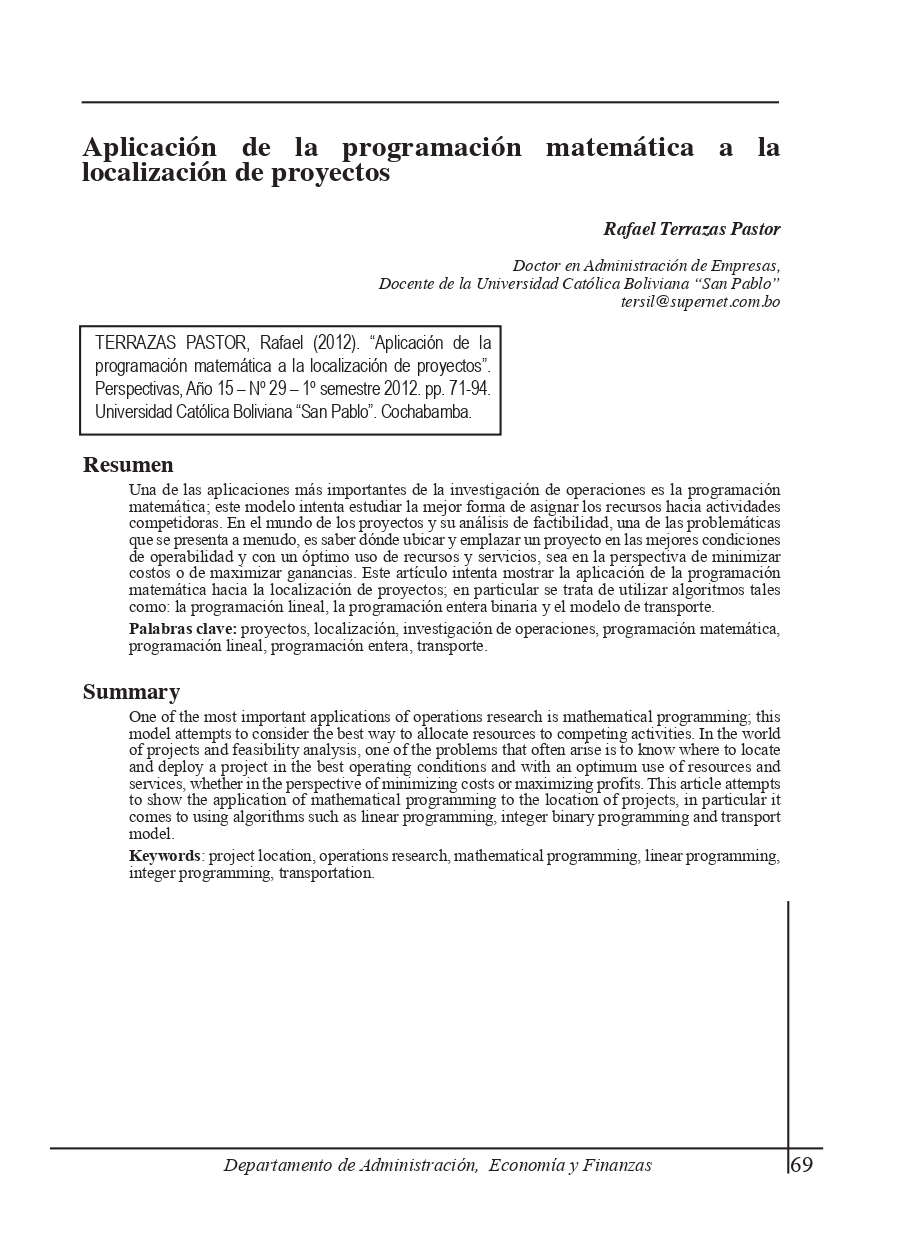Application of Mathematical Programming to Project Location
DOI:
https://doi.org/10.35319/nhgbkh35Keywords:
project location, operations research, mathematical programming, linear programming, integer programming, transportationAbstract
One of the most important applications of operations research is mathematical programming; this model attempts to consider the best way to allocate resources to competing activities. In the world of projects and feasibility analysis, one of the problems that often arise is to know where to locate and deploy a project in the best operating conditions and with an optimum use of resources and services, whether in the perspective of minimizing costs or maximizing profits. This article attempts to show the application of mathematical programming to the location of projects, in particular it comes to using algorithms such as linear programming, integer binary programming and transport model.
Downloads
References
BENEDETTI, Claudio (1991); Introduction a la Gestion des Opérations; Éditions Études Vivantes, Canadá.
LAWRENCE, John A.; PASTERNACK, Barry A. (2004); Ciencias Administrativas Aplicadas; CECSA; México.
SAPAG CHAIN, Nassir; (2011); Proyectos de inversión, formulación y evaluación; Ed. Pearson; Chile.
TERRAZAS PASTOR, Rafael (2005); Modelos Lineales de Optimización; Ed. Etreus; Cochabamba – Bolivia.
TERRAZAS PASTOR, Rafael (2006); Preparación y Evaluación de Proyectos: un enfoque sistémico e integral; Ed. Etreus; Cochabamba – Bolivia.
TERRAZAS PASTOR, Rafael (2012); Curso de “Investigación de Operaciones”; Maestría en Administración de Empresas; UNIVALLE – Cochabamba.
VARGAS Ricardo (2008); Análise de VALOR AGREGADO en Projetos; BRASPORT; 4ª Ed.; Brasil.

Downloads
Published
Issue
Section
License
Copyright (c) 2012 Revista Perspectivas

This work is licensed under a Creative Commons Attribution-NonCommercial-ShareAlike 4.0 International License.
La Revista Perspectivas de la Universidad Católica Boliviana, es una revista de acceso abierto, por lo tanto, es de libre acceso en su integridad. Está permitida su lectura, búsqueda, descarga, distribución y reutilización legal en cualquier tipo de soporte únicamente para fines no comerciales, siempre y cuando la obra sea debidamente citada.




